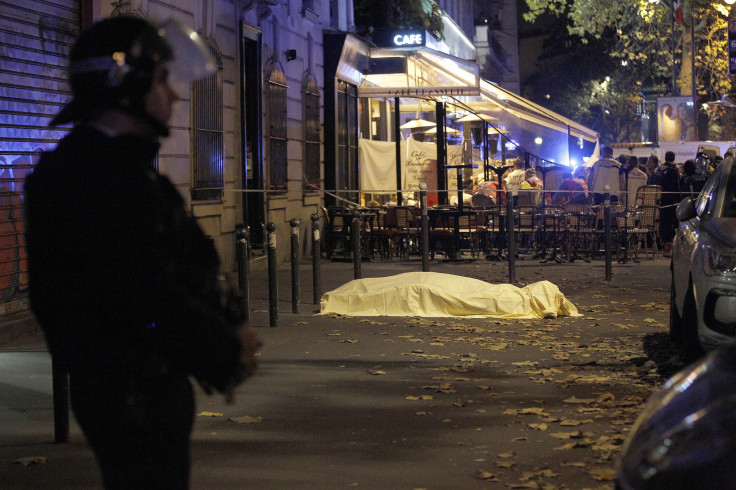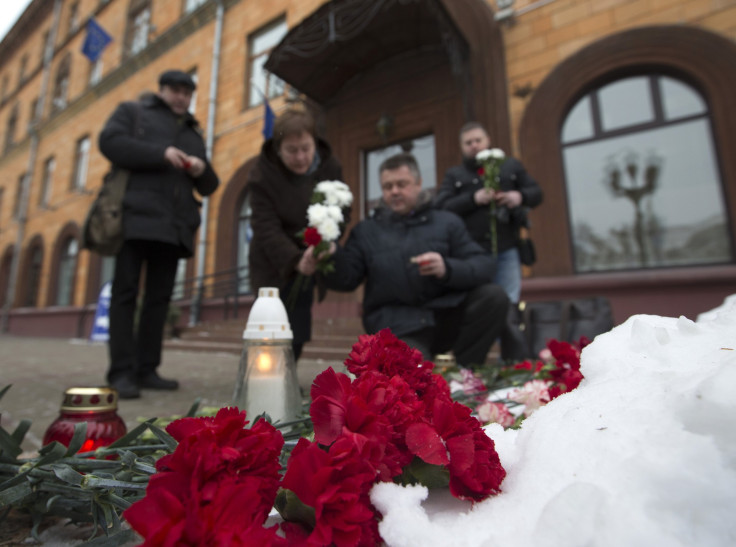Was Paris Attack Planned By ISIS Leadership? Either Unprecedented Homegrown Attack Or Islamic State Operational Shift, Analysts Say

When supporters of the so-called Islamic State group, also known as ISIS, strapped on their suicide bomb vests and loaded up their weapons Friday night, were they acting on marching orders from leaders in Syria or were they carrying out a plot of their own creation? It's a question investigators are seeking to answer after hundreds were wounded or left dead in a series of attacks across Paris.
"There clearly is a connection to [ISIS], but the precise nature of that connection remains to be established," Thomas Hegghammer, a senior research fellow at the Norwegian Defense Research Establishment, said.
ISIS is believed to have thousands of supporters and returnees from Syria living in Europe, but none have managed to pull off an attack so well-coordinated and sophisticated as the one in Paris, which left at least 129 people dead and hundreds more injured. That fact has many believing ISIS must have had a direct hand in coordinating the operation, and French President François Hollande has said the attacks were believed to have been planned in Syria and organized in Belgium. Yet an official statement by ISIS gloating about the mission's success did little to convince the world that the terrorist organization is actually responsible for drawing up the plans. If it is, it marks a drastic shift in ISIS' strategy.

Paris was struck Friday evening with six separate attacks in the largest international terrorist event since ISIS' rise in the Middle East. There appeared to be two primary targets: a soccer stadium and a concert hall. The stadium was filled with nearly 80,000 people, and although a suicide bomber apparently tried to enter, he was forced away and detonated his explosives outside the Stade de France. More than half of the deaths were from an attack at the Bataclan concert hall. The attackers were armed with AK-47 firearms and wore suicide vests with improvised explosives.
The statement claiming responsibility, which was released Saturday morning and spread by social media, showed little indication that its authors, presumably in Syria or Iraq, knew more than what could be found on any news site. It was considerably less eloquent than past claims of responsibility, included few details of the operation or any mention of names. Some viewed it as a sign that ISIS' leadership in Syria -- or at the least, their social media team -- was caught off guard by the attack and was forced to write it in haste. And absent were the martyrdom videos where militants raise their fingers to the sky and declare their deaths for the sake of God in one last farewell, hoping to milk their actions for recruitment purposes.
The voice of a militant in the video claiming ISIS' responsibility for the terror attacks in Paris has been identified as a 36-year-old Frenchman, an investigator reportedly told Le Monde newspaper Tuesday. He reportedly calls on Muslims to "fight the infidels without ever capitulating," the Mirror said.
More information was necessary to determine exactly how the plot was devised, but it did seem to have the markings of an ISIS-planned mission, said Yannick Veilleux-Lepage, a doctoral researcher at The Handa Centre for the Study of Terrorism and Political Violence at the University of St. Andrews in Scotland. Aside from the backgrounds of those responsible for the attack -- most of the individuals were believed to have traveled to Syria, CNN reported -- Veilleux-Lepage said the magnitude and coordination marked either incredible "luck" by lone wolves or professional planning.
That it came on the heels two other attacks lent credence to ISIS' claim of responsibility, he said. Last month, a Russian plane was brought down in Egypt's Sinai region, now confirmed to have been caused by an explosive device, and last week, 41 people were killed in a twin suicide bombing in a Shiite neighborhood in Beirut. Both attacks were believed to have been carried out by ISIS.
"If you look at the terrorist attack in the larger context of what's happened in the last week, we've seen ISIS claiming to be responsible for the attack in Hezbollah's stronghold in Lebanon and bringing down the Russian flight over Sinai," Veilleux-Lepage said. "These attacks together, along with Paris, seem to indicate to me that ISIS is launching attacks and responding to its loss of territory by attempting to deter further intervention."

If ISIS is directly responsible, it marks a drastic strategy shift. A report in October found that top leaders of ISIS do not generally involve themselves with organizing overseas operations and have simply left that work to lower-level figures or to sympathizers willing to act at their own volition. Only four of 69 plots carried out by ISIS supporters since 2011 were directed by midlevel ISIS figures, and in only six cases did attackers receive training from the militant group, according to the study, conducted by the Terrorism Research Initiative.
But ISIS likely has the means to advance its message of terror in new countries. The group has thousands of supporters around the world and brings in up to $50 million from oil sales each month. It also collects money through ransom demands and taxes in territory under its control.
"If this is organized by the ISIS leadership, we now enter a different paradigm," Veilleux-Lepage said. "If we look at al Qaeda and what led to 9/11, you're talking about a handful of people in the wasteland of Afghanistan with a limited amount of resources being able to strike at the heart of the American homeland. In the case of the Islamic State, we're talking about ... an amount of financing that has never been seen by a terrorist organization."
While much of the weaponry used by the militants was basic, analysts also wondered how they could have gotten their hands on suicide vests without support from the militant stronghold in Syria. Supporters skilled at building bombs have been considered some of the most valued members by groups like al Qaeda in the past, and although much remained unknown about the backgrounds of the suspects in Friday's attacks, some national security experts wondered whether they would have had the necessary bomb-making skills to orchestrate the operation.

"Suicide vests require a munitions specialist. To make a reliable and effective explosive is not something anyone can do," a former French intelligence chief told Agence France-Press, speaking on the condition of anonymity. "A munitions specialist is someone who is used to handling explosives, who knows how to make them, to arrange them in a way that the belt or vest is not so unwieldy that the person can't move ... and it must also not blow up by accident."
Analysts and security officials fear the Paris attack, whether commanded by ISIS' central command or carried out independently, could encourage lone wolves across Western countries. That, added to a possible ISIS strategy of orchestrating attacks around the globe, could mark a new, heightened level of terrorism, analysts said.
U.S. Defense Secretary Ashton Carter said Monday that lone wolves inspired by ISIS continue to pose the greatest threat to the U.S. Defeating the group at its roots, however, is necessary to preventing further attacks, he said.
"The metastasis of this has to be taken care of," Carter said, "as well as the parent tumor, which is in Syria and Iraq."
© Copyright IBTimes 2024. All rights reserved.












